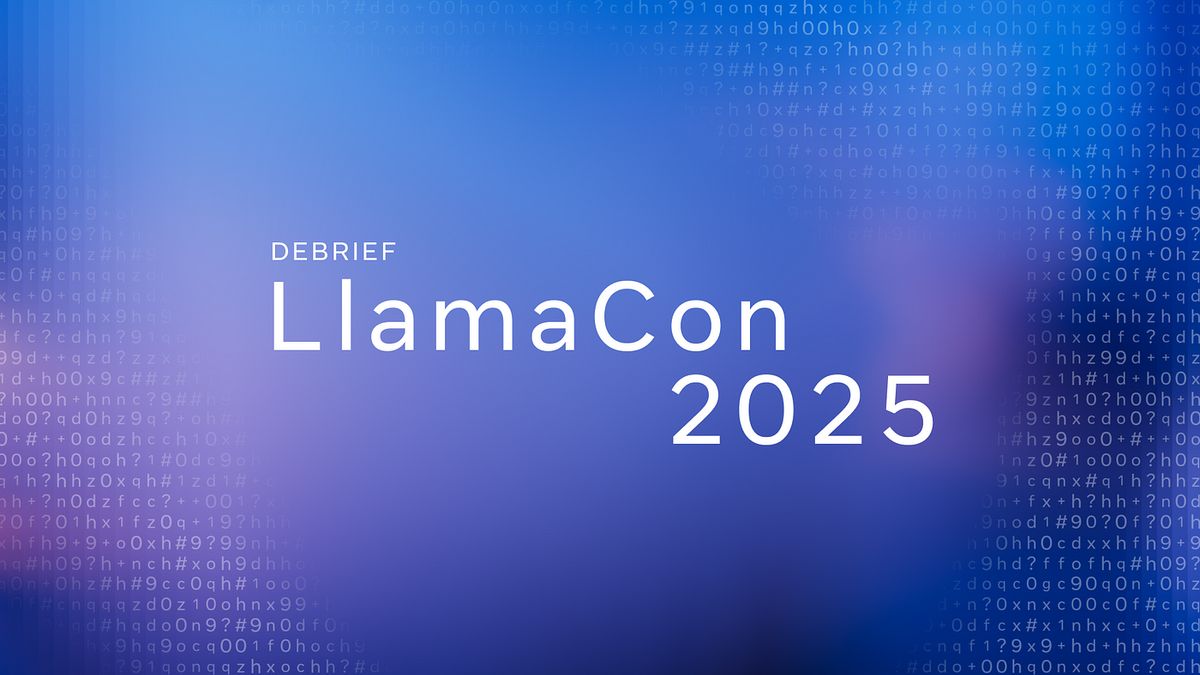Meta's LlamaCon 2025 Unveils Open-Source AI Breakthrough Challenging OpenAI

Meta Redefines Open-Source AI Race with LlamaCon 2025 Announcements
Meta's LlamaCon 2025 conference has emerged as a watershed moment in artificial intelligence, with the company unveiling its most ambitious open-source strategy yet to challenge OpenAI's dominance. The three-day event showcased groundbreaking developer tools, strategic partnerships, and security innovations that could reshape the global AI landscape OpenTools.AI.
The Llama API Revolution
At the conference's core stood the new Llama API – a direct challenge to OpenAI's proprietary ecosystem. Unlike closed systems, Meta's offering allows full model customization and portability, with developers retaining ownership of fine-tuned models. Early tests show the 17B parameter Llama 4 Scout model achieving 92% of GPT-4.5's performance on coding benchmarks while using 40% less computational resources Humanity Redefined.
Strategic partnerships with Cerebras and Groq promise to deliver 70x faster inference speeds compared to standard cloud deployments. This enables real-time applications previously limited by latency, from autonomous delivery routing to live multilingual translation systems TechStrong.AI.
Security Meets Open Innovation
Addressing longstanding concerns about open-source AI risks, Meta introduced three specialized tools:
- Llama Guard 4: Blocks 99.7% of prompt injection attacks in early trials
- LlamaFirewall: Real-time input/output monitoring with 50ms latency
- CyberSecEval 4: New industry standard for AI safety benchmarking
These developments come alongside Meta's $65 billion AI infrastructure investment, including a new Louisiana data center projected to host 1 million Llama models by 2026 Forbes.
The Global Implications
With Chinese tech giant Alibaba's Qwen3 model narrowing the performance gap to 1.7% behind US counterparts, Meta's open-source push could accelerate worldwide AI adoption. Early adopters like AT&T and Zendesk are already testing fraud detection systems built on the Llama API stack OpenTools.AI.
As Yann LeCun, Meta's Chief AI Scientist, declared during his keynote: 'The future of AI must belong to everyone, not just walled gardens.' This philosophy now faces its ultimate test against OpenAI's rumored GPT-5 launch later this quarter.
Social Pulse: How X and Reddit View Meta's LlamaCon Revolution
Dominant Opinions
- Optimistic Adoption (60%):
- @ylecun: 'Llama API finally delivers true open-source AI parity. Developers now have real choice beyond corporate silos'
- r/MachineLearning post: 'Just ported our GPT-4 finetune to Llama 4 Maverick in 3 hours - 83% cost reduction with equal accuracy'
- Security Concerns (30%):
- @AISafetyNow: 'Open-sourcing 400B param models = giving criminals blueprints for supercharged phishing. Where's the oversight?'
- r/Cybersecurity thread: 'LlamaFirewall looks promising but needs third-party audits - remember the LLaMA 1 leak disasters?'
- Neutral Observers (10%):
- @TechAnalystDaily: 'Strategic masterstroke by Meta - they're building the Android of AI while others fight over iOS'
- r/Futurology post: 'Wait until China's WuDao 3.0 integrates this - global AI race just went hyperspeed'
Overall Sentiment
The community overwhelmingly views LlamaCon as a pivotal moment for open-source AI, though significant debate continues about balancing accessibility with security. Developer enthusiasm for cost savings and customization options (60%) outweighs safety concerns (30%), with most agreeing this accelerates global AI adoption.